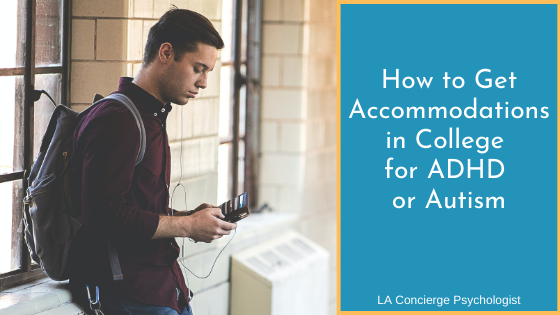Your teen struggles with their mental health. It may have been on and off during particularly stressful periods of their life, but you know they are prone to anxiety, depression, and burn out. Knowing this, it can be overwhelming thinking that your child is moving out without the needed therapeutic support. It might be tempting to ignore this important facet of the transition to college, but I urge you not to. If you do, you risk your college-bound kid struggling incredibly… possibly to the point of needing to withdraw. Fortunately, you have some options.
Option 1: Keep Your Teen’s Current Therapist
If your teen has a trusted therapist they enjoy working with at home, then it’d be helpful to continue that relationship while they’re at school. This could be done via teletherapy (e.g., secure video chat or phone). The caveat is that, legally, the therapist must be licensed in the same state the teen is going to school. So, for example, if a teen in California goes to New York for school, the therapist must be licensed in New York in order to continue seeing them.
If the therapist continues seeing your child, it’s best for the therapist to be very familiar with resources available at the college campus and in the nearby community. That way, in case of an emergency, the therapist can appropriately direct your teen to helpful local resources and effectively coordinate care, if needed.
Option 2: Transition to a New, Local Therapist
If your college-bound kid’s therapist is not licensed in the state your child is moving to, then your teen will need to transition to a new therapist. To help facilitate a smooth transition, it’s best to sign a release of information so the outgoing therapist can freely share important information with the new, incoming therapist.
If the outgoing therapist is unavailable for a consultation call with the incoming therapist, it’s still possible to have a helpful transition. The outgoing therapist can use the last few sessions to discuss with your teen important information to share with the incoming therapist. The outgoing therapist may even provide your college-bound kid with some materials to give to the incoming therapist.
Option 3: Find a Brand-New, Local Therapist
If your teen doesn’t have a trusted therapist at home, then it’s best to have a therapist locally at their school. The teen will be at college the majority of the year, so it’s more helpful to have someone “on the ground”. That therapist would hopefully understand the college system and know of college and community resources the teen could use.
Most colleges have a counseling center or student psychological services on campus that provide free or low-cost therapy. However, generally, these services are for acute, brief issues. If your teen needs on-going support, it’s best to find a provider in the community. Even if your teen can’t see someone at the counseling center, the center likely has a list of trusted providers in the community.
Click here for more information on College Transition and Gap Year Consultation.
Does your California college kid need therapeutic support? Send us a message or book a free 20 minute consultation call with Dr. Barajas or Dr. Goldman.



